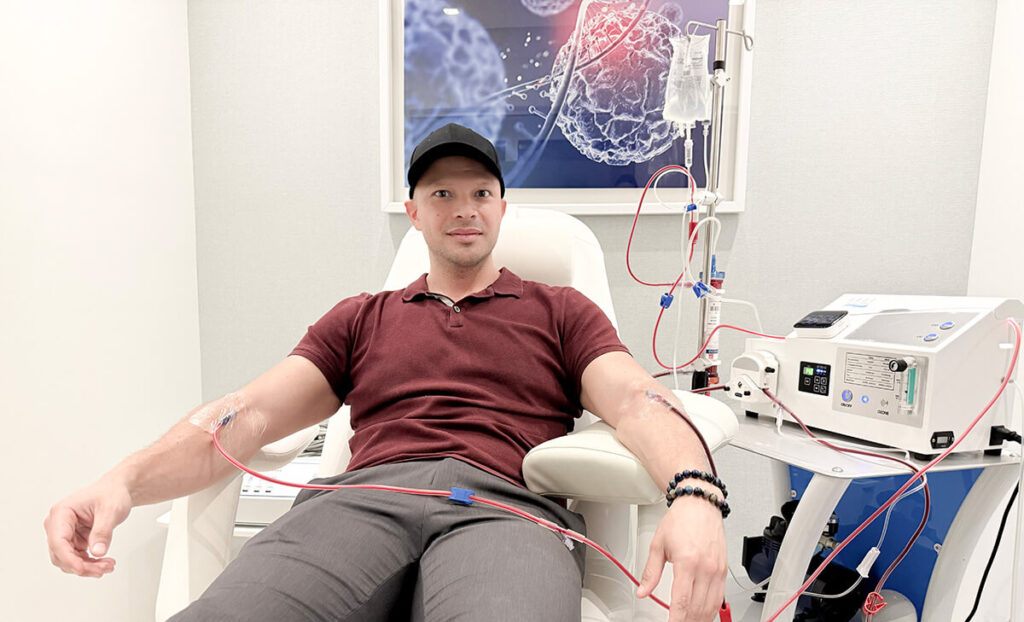The landscape of diabetes management is undergoing a significant shift with the emergence of the ProLon diabetes treatment, now officially recognized by the American Diabetes Association (ADA). For the first time, a protocol rooted in advanced nutrition and fasting-mimicking science has entered mainstream medical conversations as a viable option for addressing the root causes of type 2 diabetes.
This groundbreaking recognition by the ADA signals a paradigm change: diabetes treatment is no longer solely reliant on chronic medication—it now embraces clinical nutrition, cellular regeneration, and metabolic reset.
What Is the ProLon Diabetes Treatment?
The ProLon diabetes treatment is based on the Fasting Mimicking Diet (FMD), a 5-day nutritional program developed by L-Nutra Health and based on over two decades of research by Dr. Valter Longo, a leading figure in longevity and metabolic health.
Unlike traditional fasting, ProLon provides essential nutrients while triggering the physiological benefits of fasting. This unique approach helps the body improve metabolic markers without the risks associated with water-only fasts.
The treatment has gained significant attention following its presentation at the ADA’s most prestigious scientific congress, where it was highlighted as a promising tool for addressing type 2 diabetes beyond pharmacological interventions.
How ProLon Is Revolutionizing Type 2 Diabetes Treatment
For years, managing type 2 diabetes focused heavily on medication to control blood sugar levels. However, the ProLon diabetes treatment introduces a new approach that targets the disease’s root causes—insulin resistance, chronic inflammation, and metabolic dysfunction.
1. Scientific Evidence Backing ProLon
Clinical trials presented by L-Nutra Health demonstrate the efficacy of ProLon in improving key health markers:
- Participants saw an average reduction of 1.4% in HbA1c levels, a critical indicator of long-term blood sugar control.
- 67% of patients were able to reduce or eliminate their diabetes medications.
- Improvements were observed in insulin sensitivity, weight management, and inflammatory markers.
These outcomes are not only promising but have now been acknowledged by the ADA, marking a significant validation of the ProLon approach.
The Science Behind the ProLon Diabetes Treatment
The ProLon protocol induces a fasting state without full caloric deprivation. Through carefully designed, plant-based meals, the body enters a process of:
- Nutrient-sensing pathway modulation, promoting cellular repair
- Autophagy activation, where damaged cells are cleaned and replaced
- Reduced inflammation, which is a key driver of metabolic diseases
- Improved insulin sensitivity, essential for reversing diabetes progression
Studies published in Cell Metabolism and the Journal of Clinical Endocrinology & Metabolism have shown the significant role of fasting and fasting-mimicking diets in metabolic health (source, source).
Why the ADA’s Recognition Matters
The ADA’s acknowledgment of the ProLon diabetes treatment is a game-changer for several reasons:
- It validates years of rigorous scientific research into fasting-mimicking diets.
- It opens doors for healthcare professionals to incorporate ProLon into clinical practice.
- It signals a shift toward metabolic restoration, rather than symptom management alone.
- It empowers patients to pursue evidence-based, non-pharmacological options for their health.
As Dr. Valter Longo emphasized, “Nutrition is medicine, and with ProLon, we’re seeing how targeted dietary interventions can unlock the body’s natural healing mechanisms.”
Benefits of the ProLon Diabetes Treatment
The ProLon protocol is designed to be safe, effective, and accessible. Key benefits include:
- Reduction in HbA1c and blood sugar levels
- Improved insulin sensitivity and metabolic flexibility
- Decreased need for diabetes medication
- Fat loss with preservation of lean muscle mass
- Reduced systemic inflammation
- Cellular regeneration through autophagy
- Enhanced energy, sleep quality, and cognitive clarity
These benefits contribute to long-term metabolic health and may reduce the risk of diabetes-related complications.
How the ProLon Diabetes Treatment Works
The treatment follows a structured, five-day cycle, repeated periodically under medical supervision:
- Day 1: Transition into a fasting-mimicking state
- Days 2–3: Fat-burning and ketone production increase
- Days 4–5: Cellular clean-up (autophagy) and metabolic reset occur
Unlike traditional fasting, ProLon provides micro- and macronutrients designed to nourish the body while keeping it in a fasting-like state.
Patients following the ProLon diabetes treatment often report improved blood sugar control, reduced cravings, and increased overall well-being.
Who Can Benefit from the ProLon Diabetes Treatment?
This protocol is ideal for:
- Individuals with type 2 diabetes
- Those with prediabetes or metabolic syndrome
- Patients seeking to improve insulin sensitivity
- People aiming to reduce or eliminate diabetes medications
- Individuals struggling with stubborn fat and inflammation
- Anyone looking to enhance longevity and metabolic health
It is crucial to consult with a healthcare provider before starting ProLon, especially for individuals managing chronic conditions.
ProLon vs. Conventional Diabetes Treatments
Comparing ProLon to standard approaches reveals distinct advantages:
- ProLon targets root causes, addressing metabolic dysfunction directly.
- Conventional medications often manage symptoms without reversing disease progression.
- ProLon works in cycles, while traditional drugs are typically taken daily, long-term.
- Weight loss and inflammation reduction are natural outcomes with ProLon.
- Cellular regeneration occurs with ProLon, a benefit not offered by pharmaceuticals.
This comprehensive approach positions the ProLon diabetes treatment as a complementary or alternative option for those seeking sustainable results.
Integrating ProLon into Comprehensive Health Programs
Leading clinics such as Xtend Optimal Health have adopted ProLon as part of their advanced programs for metabolic reset and diabetes reversal.
Their multidisciplinary approach includes:
- Comprehensive metabolic assessments
- Nutritional coaching and guidance
- Monitoring of blood sugar and inflammatory markers
- Lifestyle modification support
- Emotional wellness and stress management
Patients experience improvements not only in clinical markers but also in their quality of life, energy levels, and sense of control over their health.
The Future of Diabetes Treatment Is Here
The recognition of the ProLon diabetes treatment by the ADA is a testament to the evolving understanding of chronic disease management. It reflects a broader trend toward integrating nutrition, fasting science, and cellular health into medical protocols.
For individuals with type 2 diabetes, ProLon represents more than a diet—it offers a scientifically validated path to reducing dependency on medications and restoring metabolic health.
As the ADA continues to embrace innovative, evidence-based approaches, the role of ProLon in diabetes treatment is set to expand.
If you are interested in the Prolon treatment, you can contact us.





